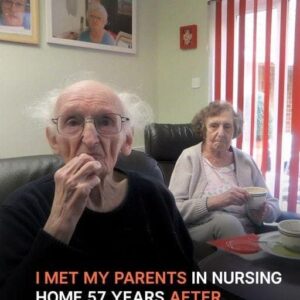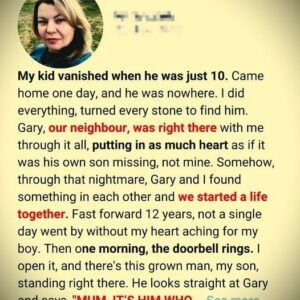As a refugee medical examiner for Los Angeles County, I have had the privilege of being the first doctor many new arrivals see in the U.S. In these moments of vulnerability, refugees share not just their medical history but their personal stories — tales of resilience, hope and the arduous journeys that brought them here.
I have screened engineers who supported our forces in Afghanistan, Ukrainians whose homes were reduced to rubble, religious minorities discriminated against in Nigeria, Iran and Turkey, and a Guatemalan prosecutor who joked that he’s traded dodging bullets for battling Los Angeles traffic.
Through our services to protect their health as well as the health of our public from any imported infections, I have seen the transformative power of America’s promise — the relief in a mother’s eyes when her child receives long-delayed medical care; the determination of a former translator to build a new life, practicing English phrases during our check-up; the joy of an elderly couple finally safe from fear, the tuberculosis patients’ laughter, echoing, as they share plans for their grandchildren’s future. These moments reflect the very best of our nation.
In last night’s presidential debate, the issue of immigration took center stage, as expected. Vice President Kamala Harris, in particular, stood at a crossroads.
The current administration has taken important steps to restore America’s commitment to refugees, raising the annual admissions cap from a historic low of 18,000 under the previous administration to 125,000. Although this is progress, it still falls short of historical highs (the peak was 231,700 in 1980); ongoing crises on our border and across the globe call for an even bolder approach. As the nation watched, Harris had an opportunity to reaffirm, not apologize for, this commitment, by making it clear that America will continue to lead the world.
Founded by refugees, the U.S. has long been a beacon for those fleeing war, persecution and violence. From the Puritans and Quakers who sought religious freedom to the more recent waves of refugees from places like Vietnam and Bosnia, America’s legacy of welcoming the world’s vulnerable is woven into the fabric of who we are.
It is crucial to understand the difference between refugees and asylum seekers. Refugees apply from their home countries and travel to the U.S. after being approved. They receive support through a thoughtful resettlement process that is a model of public-private partnership and comprehensive support. From humanitarian groups like the International Rescue Committee to faith-based organizations like Global Refuge to government agencies like mine, there’s an entire network dedicated to welcoming refugees, offering English classes, job preparation, apartment hunting, school enrollment and more.
In Minnesota, for instance, the Minnesota Council of Churches has resettled Karen refugees from Myanmar, many of whom have revitalized their congregations. In Texas, refugee-run businesses in Houston have boosted the local economy, with the city proud to be among the most welcoming for refugees in the nation. In Vermont, communities provide not just material support but also friendship and cultural exchange.
In contrast, asylum seekers request their status after arriving in the U.S. The system for asylum requests, particularly at the southern border, is under immense strain. We’re seeing record-high numbers, with over 4 million encounters and 1 million asylum requests in 2022 and 2023 alone.
Unlike refugees, asylum seekers don’t receive any resettlement support while their cases are being determined. Having left everything behind to survive, those without U.S. contacts often find themselves — and their host cities — under significant strain. Given the concerns with border security, we should focus on the refugee process.
Raising the cap, expanding the eligibility for pathways such as the Priority 3 Family Reunification Program and expediting applications are possible starting points. More refugees will mean a more controlled, supportive process where the benefits go both ways. When given the chance, refugees repay that opportunity by becoming self-sufficient, integrated and successful Americans.
Contrary to some perceptions, refugees improve the safety of their surroundings. A prime example is the city of Lewiston, Maine, which experienced an influx of Somali refugees in the early 2000s. Despite false allegations by Donald Trump, the city experienced a steady decline in crime, with the acting police chief defending its Somali residents.
Similarly, the Rust Belt city of Buffalo saw its crime rates drop by 40 percent between 2010 and 2017, as its refugee population grew. Local officials attributed part of this success to the revitalization of neighborhoods by hard-working refugee families.
Refugee employment rates mirror or even exceed that of the general population, and refugee-owned businesses generate significant revenue. In Idaho, for example, refugees have played a crucial role in the state’s dairy industry, helping it become one of the largest in the nation. And in Georgia, Clarkston, often referred to as the “Ellis Island of the South,” has seen its economy grow due to its large refugee population.
The New American Economy Fund found high rates of refugee entrepreneurship, creating opportunities for American workers and contributing more than $20 billion in federal, state and local taxes when this was studied back in 2015. In California alone, they found refugees made substantial contributions to the state’s economy, with $17.2 billion in spending power.
Recent polling found that about 72 percent of Americans believe that taking in civilian refugees from countries experiencing violence and war should be an important goal for U.S. immigration policy. This broad public support is mirrored in Congress, where bipartisan groups of lawmakers have championed refugee resettlement. From the Refugee Act of 1980, which standardized resettlement services for all refugees admitted to the U.S., to the Lautenberg Amendment, which aided Soviet Jews and Evangelical Christians, to more recent efforts assisting Afghan and Ukrainian refugees, support for refugees has transcended party lines.
Unfortunately, we are living in fractured times. As we reflect on this week’s debate and consider our nation’s future, let’s consider which candidate used the opportunity to paint a more confident, joyful and generous vision of America — one that challenges us to see refugees as I’ve seen them, not as burdens but as future neighbors, colleagues and friends who enrich our lives.
Naman Shah, MD, Ph.D., is director of medical and dental affairs at the Los Angeles County Department of Public Health, a Paul and Daisy Soros Fellow, and a Public Voices Fellow of the OpEd Project. The views expressed in this commentary are his own.





